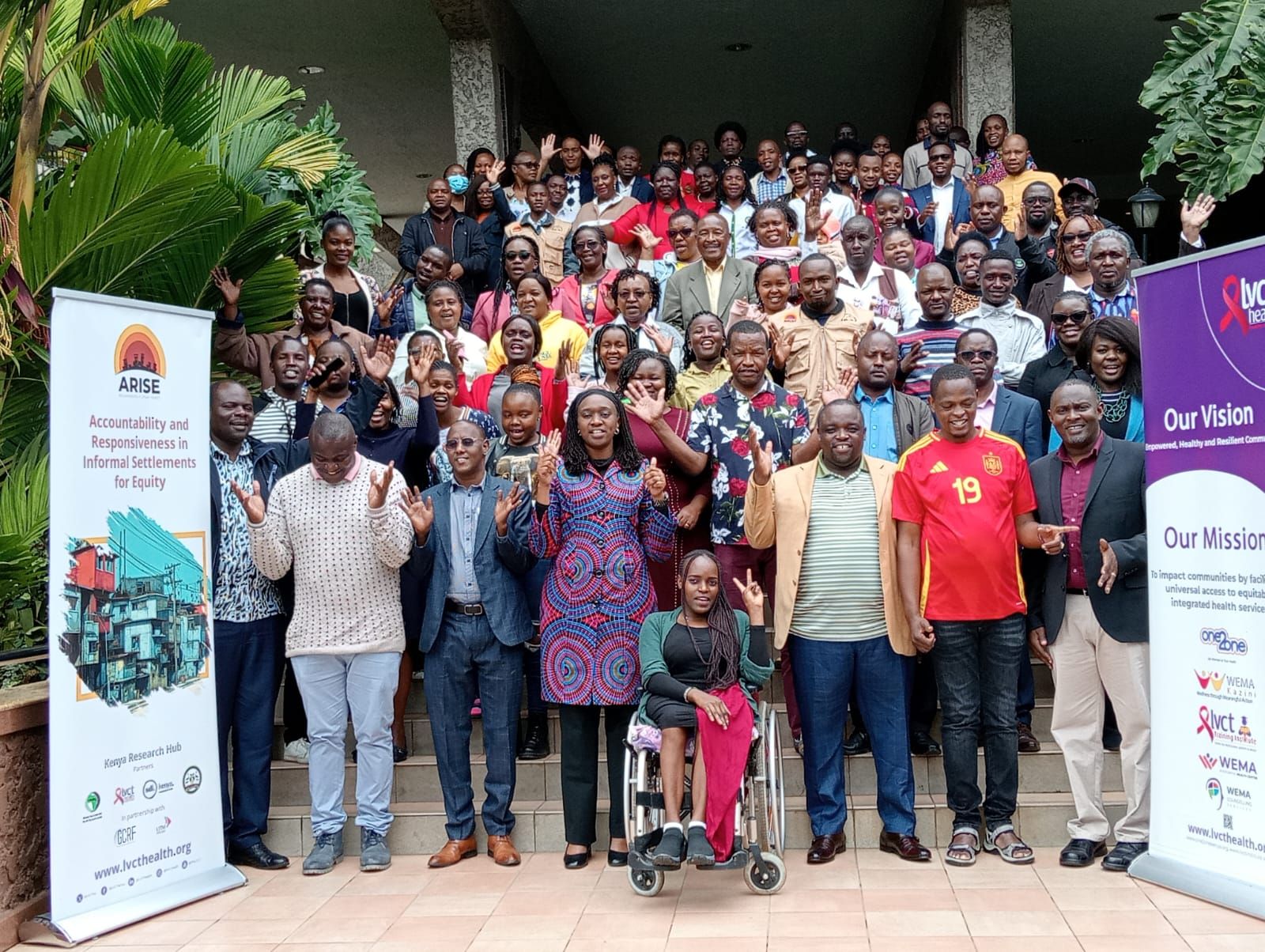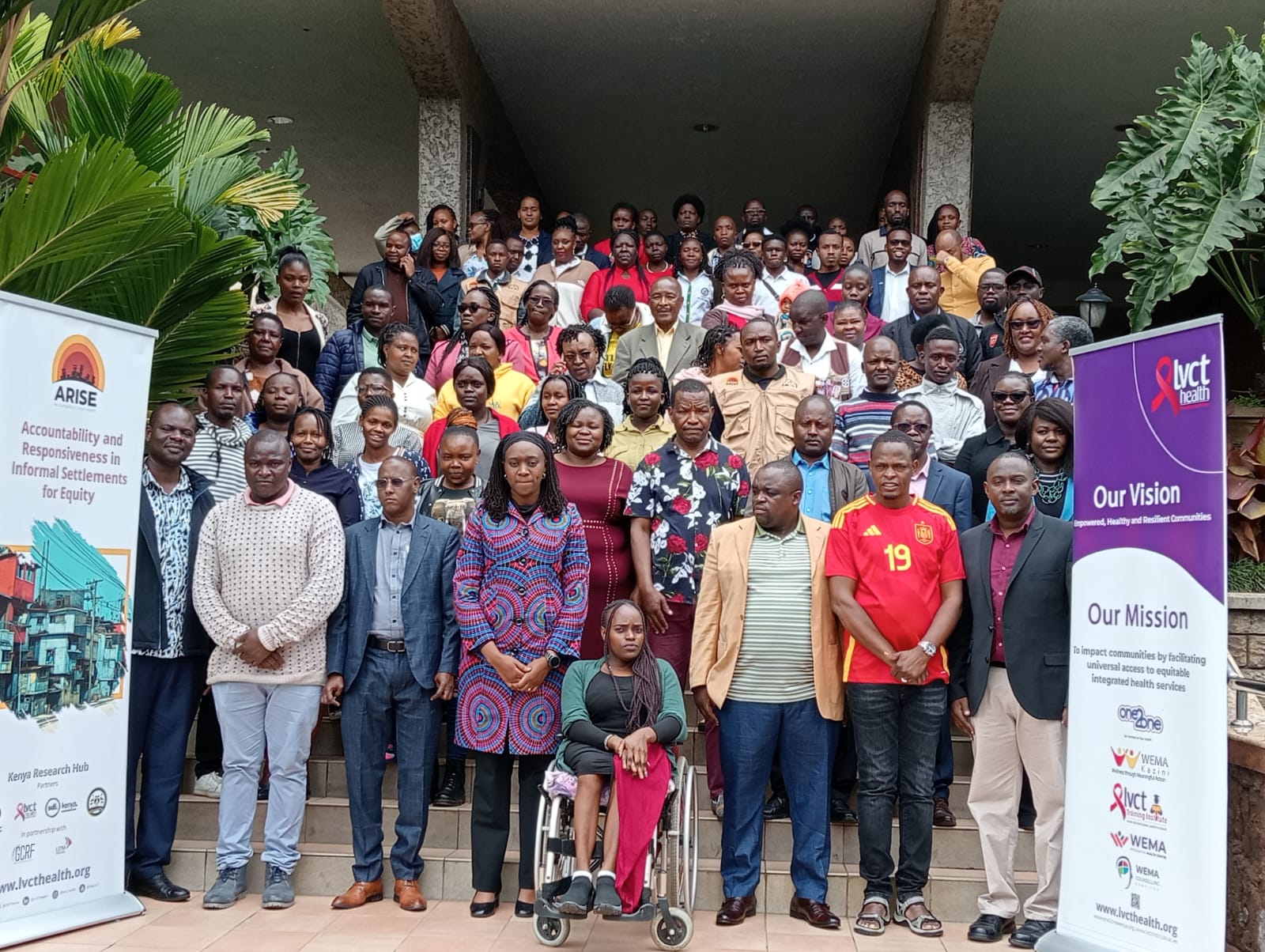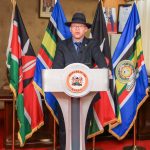In a groundbreaking effort to address health equity in Nairobi’s informal settlements, the Accountability and Responsiveness in Informal Settlements for Equity (ARISE) project, led by LVCT Health, has concluded its multi-year research and intervention program, shedding light on the unique challenges faced by marginalized groups. Dr. Lilian Otiso, the Executive Director of LVCT Health, shared insights from the study during the project’s close-out event, which brought together community leaders, policymakers, and stakeholders.
“We began this journey in 2019 with the goal of identifying the gaps in accountability and responsiveness in urban slum settings,” said Dr. Otiso. “Our focus was on understanding who is vulnerable, what risks they face, and how they can be better supported.”
The study, which focused on the Korogocho and Viwandani areas, identified three key vulnerable groups: people with disabilities, the elderly, and children heading households. Additionally, the project explored the experiences of pregnant adolescents in these communities, using innovative methods such as PhotoVoice, where participants documented their lives through photography.
“Through their lenses, we saw firsthand the struggles they face—dirty environments, lack of food, and limited access to water and healthcare services,” Dr. Otiso explained. “These images tell powerful stories of resilience and the urgent need for targeted interventions.”
The event also showcased the collaborative efforts between LVCT Health and local community-based organizations to improve the livelihoods of these vulnerable groups. “We partnered with three organizations to provide financial training, employment opportunities, and health education, especially for people with disabilities,” Dr. Otiso noted. “It’s encouraging to see some of them now employed and receiving the support they need.”
Dr. Otiso emphasized the need for a continued focus on these groups, calling on the government and NGOs to adopt an equity-based approach in their programming. “The government and most organizations tend to program for everyone in general, often overlooking those who are most at risk. We need to ensure that no one is left behind,” she urged.

Although the project, funded by the UK Research Institute’s Global Challenges Research Fund, is now coming to an end, its impact is expected to be long-lasting. “We’ve made sure that the awareness created during this project will continue to influence policies and programs,” Dr. Otiso said. “For example, a bill addressing child-headed households has been passed at the county level, and we hope to see more such initiatives.”
Looking ahead, LVCT Health is seeking additional resources to expand its work, particularly in areas like mental health support for teenage mothers and school feeding programs in slum settings. “We are committed to staying in Nairobi, continuing our participatory approach, and co-creating solutions with the communities we serve,” Dr. Otiso concluded.
The ARISE close-out event served as a powerful reminder of the ongoing challenges in Nairobi’s slum communities and the importance of sustained, collaborative efforts to address them. With the momentum generated by this project, there is hope for a future where equitable health and well-being are within reach for all.










